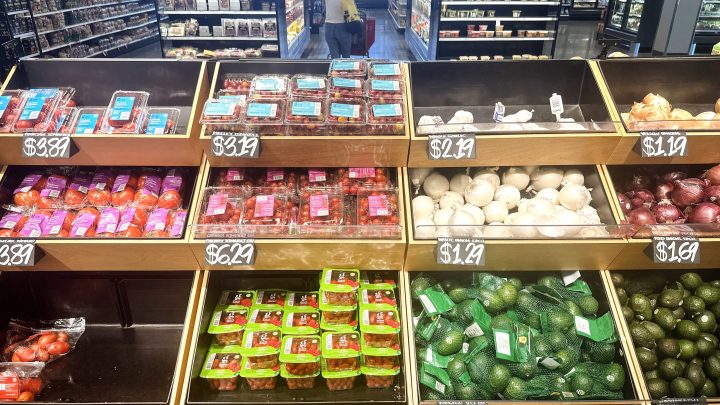
Did retail sales grow because we bought more stuff, or did the stuff get more expensive?
Did retail sales grow because we bought more stuff, or did the stuff get more expensive?

Retail sales rose in September, up 0.7% from August and up 3.8% from the same time a year ago, the Census Bureau reported Tuesday. A big part of the increase was driven by auto sales, along with spending at gas stations and online shopping.
But the thing you have to know about the bureau’s retail sales report is that it’s not adjusted for inflation. And in today’s economy, that’s a pretty big weakness.
The report specifically looks at the dollar value of the stuff retailers sell. And that can be pretty misleading.
“Gasoline is a good example, where gas station spending tends to go up with gas prices,” said Skanda Amarnath, executive director of Employ America. “That doesn’t necessarily mean that there’s a strong consumer just because that happens.”
To adjust for rising prices, Amarnath does his own calculations. He looks at how much retail sales rose in a category, then compares that number to how much prices rose in similar categories in the consumer and producer price indexes.
“And to be perfectly honest, there’s not, like, perfect alignment here,” Amarnath said.
Take grocery store spending, for example. On Tuesday, we learned that it rose 0.4% in September. But was that because people bought more groceries? Or because groceries were more expensive?
It really depends on the item, said Laura Veldkamp, an economics professor at Columbia University.
In the consumer price index and the producer price index, for example, “what we’d see measured as prices, it might be fresh fruits and vegetables. You know, also, hygiene products,” Veldkamp explained.
But the retail sales report doesn’t get that granular. And Veldkamp said if you try to look even closer into the prices of individual items, the numbers get even harder to sort out.
“Because we’re taking a smaller and smaller number of transactions and trying to figure out exactly what’s happening to the prices of those,” Veldkamp said.
The Census Bureau said it’s working to adjust the retail sales report at some point in the future.
Kevin Gordon, senior investment strategist at Charles Schwab, said nobody really thought much about adjusting the data until prices started rising a couple years ago.
“It’s almost funny, it was never really a question before the surge in inflation that we started to see at the beginning of 2021,” Gordon said.
Gordon said it’s a good sign that retail sales have been growing steadily for months now.
“That’s great from almost everybody’s perspective, because it means that you’re able to hold on to better retail sales growth, better spending, but at the same time, inflation continues to trend lower,” Gordon said.
And if inflation keeps trending lower, Gordon said we might be able to start taking the retail sales report at face value again.
There’s a lot happening in the world. Through it all, Marketplace is here for you.
You rely on Marketplace to break down the world’s events and tell you how it affects you in a fact-based, approachable way. We rely on your financial support to keep making that possible.
Your donation today powers the independent journalism that you rely on. For just $5/month, you can help sustain Marketplace so we can keep reporting on the things that matter to you.

















